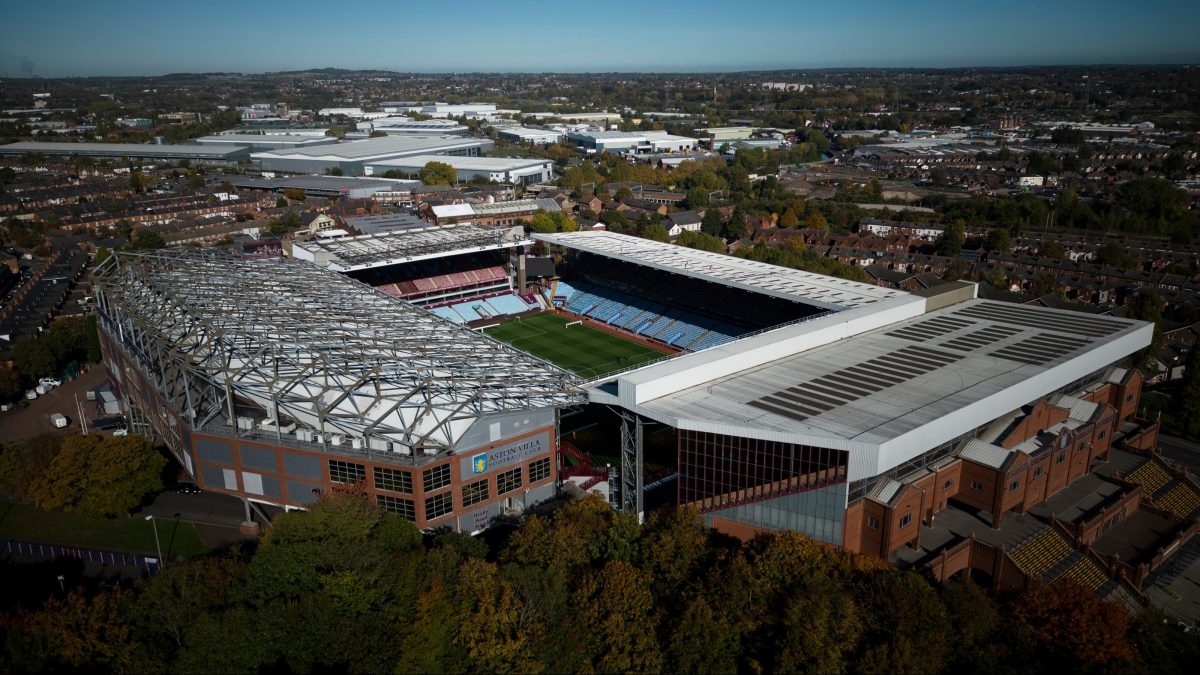
As the founders of the sport, England also boasts some of the world’s oldest and most beautiful football stadiums. Let’s take a look at some of our favorites.
Wembley
With its iconic 440 foot arch which spans across the stadium, the new Wembley is an unmissable landmark in London. The stadium is built on top of the old Wembley stadium which also spawned the London skyline, and famously where England won the 1966 World Cup on home soil. With 90,000 capacity, Wembley has hosted the Champions League, domestic cups, and is currently the home of Tottenham.
Old Trafford, Manchester United
With room for 80,000 fans, Old Trafford is the largest stadium in the United Kingdom. Also known as the “Theater of Dreams” as nicknamed by club legend Bobby Charlton, it hosted Red Devils football matches since 1910. The stadium was also one of the first football stadiums in the world to feature a United museum and trophy room.
Rumors of a potential Qatari takeover of the club may give the storied venue a much-needed facelift.
Anfield, Liverpool
With a capacity for 54,000, Anfield is one of the most iconic stadiums in world football. It broke ground as a venue originally for Everton in 1884 before the team departed and Liverpool was established to occupy it. From the Bill Shankly statue and Gates that read “You’ll Never Walk Alone” to the chants of the Kop Choir, Anfield offers one of the most passionate and unique of football experiences.
Craven Cottage, Fulham FC
One of the more intimate grounds with 25,700 seating, Craven Cottage is located on the bank of River Thames in London. It originally served as a royal hunting lodge in the 1700s, with Fulham F.C. playing its first match in the stadium in 1896. One of the stadium’s most famous pieces is the clubhouse called the Pavillion cottage which still operates as a changing room for players.
Emirates, Arsenal
With a capacity of 60,000, the Emirates Stadium is one of the newest Premier League venues. Circling the stadium one can find murals exhibiting some of the greatest moments in Gooner history, including statues of famous players like Tony Adams and Thierry Henry. Arsenal played it first match at the Emirates in 1-1 tie against Aston Villa in August 2006.
The City Ground, Nottingham Forest
Built in 1898 on the banks of the River Tent, The City Ground plays home to club Nottingham Forest. With a 30,445 seating capacity and beautiful scenery surrounding the stadium, there is no bad view at The City Ground.
St James’ Park, Newcastle United
The home of Newcastle United, St James’ Park opened in 1892. Given significant renovations from 1998 – 2000, the stadium increased capacity to 52,454 making it the seventh biggest stadium in England.
Goodison Park, Everton
As well as being one of the oldest stadiums with its completion in 1892, Goodison Park holds the record for hosting the most professional football matches in England. It is home to Everton, a club that’s been relegated just twice in its 140-year storied franchise’s career.
The Kirklees Stadium, Huddersfield Town
Built in 1994, the Kirklees Stadium is home to Huddersfield Town. Featuring banana style arches, the stadium holds seats for nearly 24,000 fans.
Sincil Bank, Lincoln City
Home to club Lincoln City since 1895, Sincil Bank stadium or “Sinny Bank” as the fans call it, sits in a rural setting that oversees the beautiful Lincoln Cathedral.
Villa Park, Aston Villa
Built in 1897, Villa Park played host for 55 FA Cup semi-finals back in the heyday of the Villans. With recent upgrades and renovations, the stadium has increased capacity to 42,682 seats with goals to expand yet again to 50,000.